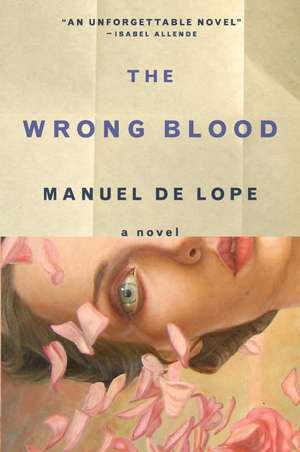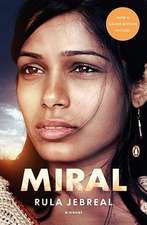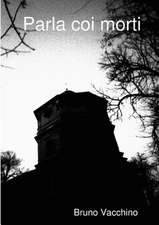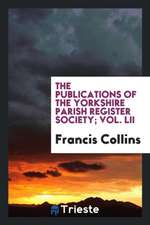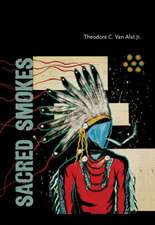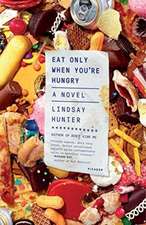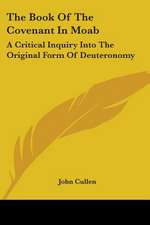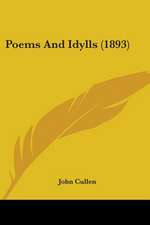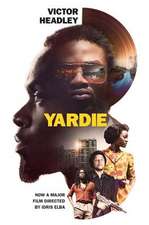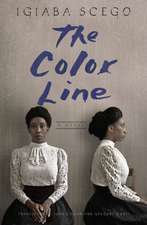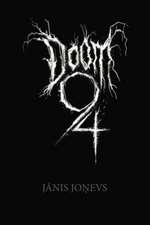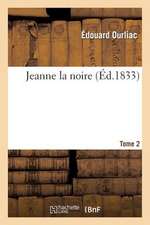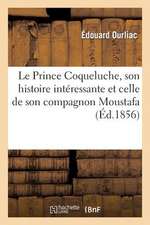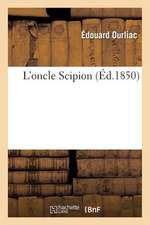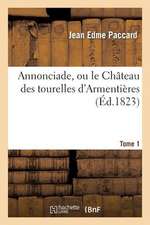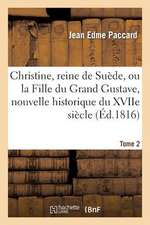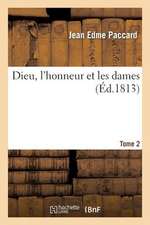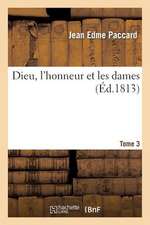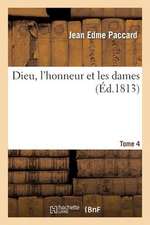The Wrong Blood
Autor Manuel de Lope Traducere de John Cullenen Limba Engleză Paperback – 31 aug 2010
De Lope brilliantly reveals his incredible story through flashes of memory and emotion, told in a winding torrent that expresses the cumulative nature of both history and nostalgia.
Preț: 87.18 lei
Nou
Puncte Express: 131
Preț estimativ în valută:
16.68€ • 17.31$ • 13.94£
16.68€ • 17.31$ • 13.94£
Carte indisponibilă temporar
Doresc să fiu notificat când acest titlu va fi disponibil:
Se trimite...
Preluare comenzi: 021 569.72.76
Specificații
ISBN-13: 9781590513095
ISBN-10: 1590513096
Pagini: 288
Dimensiuni: 148 x 211 x 24 mm
Greutate: 0.36 kg
Editura: Other Press (NY)
ISBN-10: 1590513096
Pagini: 288
Dimensiuni: 148 x 211 x 24 mm
Greutate: 0.36 kg
Editura: Other Press (NY)
Notă biografică
Manuel de Lope was born in Burgos, Spain in 1949. At age fifteen he moved to
Madrid where he now resides again, after having lived in Geneva, London, and the South of France for twenty-five years. In 1978 he published his first novel, Albertina en el país de los Garamantes, thus commencing one of the most treasured and significant careers in modern Spanish literature. The Wrong Blood is his first novel to be translated into English.
John Cullen is the translator of many books from the Spanish, French, German, and Italian, including Enrique de Hériz’s Lies, Yasmina Khadra’s Middle East Trilogy (The Swallows of Kabul, The Attack, The Sirens of Baghdad), Christa Wolf’s Medea, and Margaret Mazzantini’s Don’t Move. He lives in upstate New York.
Madrid where he now resides again, after having lived in Geneva, London, and the South of France for twenty-five years. In 1978 he published his first novel, Albertina en el país de los Garamantes, thus commencing one of the most treasured and significant careers in modern Spanish literature. The Wrong Blood is his first novel to be translated into English.
John Cullen is the translator of many books from the Spanish, French, German, and Italian, including Enrique de Hériz’s Lies, Yasmina Khadra’s Middle East Trilogy (The Swallows of Kabul, The Attack, The Sirens of Baghdad), Christa Wolf’s Medea, and Margaret Mazzantini’s Don’t Move. He lives in upstate New York.
Extras
The girl crossed her arms, pulled the blanket over her shoulders, and turned around. Neither the lieutenant nor his two men were the ones who were going to rape her. She was afraid to retrace the thirty meters, because her heart was pounding in her chest and she couldn’t see where she was putting her feet. In church, the priests taught the children such behavior, telling them that they had to be obedient, even in time of war, even though they could escape and disappear on the mountain with the cows after setting fire to the hayloft, and then, for decades to come, the house that had sheltered Etxarri’s Bar would be nothing but a burnt patch, a few charred beams on ash-covered ground, and nobody except a very few people would know that María Antonia Etxarri had set the house on fire to save herself from being raped, but instead of doing that, remembering other reasons and other rains, María Antonia obediently mounted the stairs to the room, doing as she had been told, fearing only the barrage of blows she would get from her stepfather should peace ever come.
Recenzii
“Absorbing…artfully translated by John Cullen...While the uncovering of secrets provides the spine of the narrative, its appeal lies in the way de Lope makes us question just how separate the past and present may really be…De Lope has written a fever dream of a novel.” —New York Times Book Review
“Balancing the domestic and the tragic, The Wrong Blood explores the ways in which political history and personal histories intertwine: it is an invaluable reminder of how, in the midst of war, love and continuity preserve potential for a richer life despite what seems to be utter disaster.” —PRI’s The World
“De Lope evokes his characters’ interior lives and their outer surroundings with equal beauty and intensity. This masterful novel is his first to be translated into English. Let’s hope there are more.” —Booklist
“…the American debut of a celebrated Spanish novelist reads rapturously…the prose...pulsates and palpitates.” —Kirkus Reviews
“De Lope is a masterly writer, constructing a shadowy architecture to house his expansive prose, intertwining plotlines, and themes of misfortune, solitude, and memory. Highly evocative of time and place, this resonant work will linger in readers’ minds. Recommended.” —Library Journal
“Reading The Wrong Blood is like surrendering to a hypnotist. Manuel DeLope’s subject is the fluidity of time and the pitilessness of war as played out in the lives of two women who quietly conspire to commit a victimless crime. The style is a marvel of precision and patience, resulting in an atmosphere so saturated with suspense that I found myself wanting to read more slowly, even as I breathlessly anticipated the next paragraph. I’ve seldom read a more sublime and disturbing novel.” —Valerie Martin, author of The Confessions of Edward Day
“The Wrong Blood is a prose-poem to the furtive compromises that mitigate grief, and allow human survival at desperate times. Written with elegant ambiguity: I loved it.” — Dave Boling, author of Guernica
“The Wrong Blood is a powerful novel suffused from beginning to end with a terrible, suppressed violence. Its chief virtue lies in showing us that war—every war—is like a distorting mirror: the soul never recovers from the monstrous vision reflected there.” — Mayra Montero, author of The Messenger and Dancing to “Almendra”
“Moving and harrowing…the reader has been stirred to the core.” —The Financial Times
“Amid the current outpouring of Civil War fiction in Spain, the books of Manuel de Lope and María Barbal…should be top of interested readers’ lists.” —The Independent
“Balancing the domestic and the tragic, The Wrong Blood explores the ways in which political history and personal histories intertwine: it is an invaluable reminder of how, in the midst of war, love and continuity preserve potential for a richer life despite what seems to be utter disaster.” —PRI’s The World
“De Lope evokes his characters’ interior lives and their outer surroundings with equal beauty and intensity. This masterful novel is his first to be translated into English. Let’s hope there are more.” —Booklist
“…the American debut of a celebrated Spanish novelist reads rapturously…the prose...pulsates and palpitates.” —Kirkus Reviews
“De Lope is a masterly writer, constructing a shadowy architecture to house his expansive prose, intertwining plotlines, and themes of misfortune, solitude, and memory. Highly evocative of time and place, this resonant work will linger in readers’ minds. Recommended.” —Library Journal
“Reading The Wrong Blood is like surrendering to a hypnotist. Manuel DeLope’s subject is the fluidity of time and the pitilessness of war as played out in the lives of two women who quietly conspire to commit a victimless crime. The style is a marvel of precision and patience, resulting in an atmosphere so saturated with suspense that I found myself wanting to read more slowly, even as I breathlessly anticipated the next paragraph. I’ve seldom read a more sublime and disturbing novel.” —Valerie Martin, author of The Confessions of Edward Day
“The Wrong Blood is a prose-poem to the furtive compromises that mitigate grief, and allow human survival at desperate times. Written with elegant ambiguity: I loved it.” — Dave Boling, author of Guernica
“The Wrong Blood is a powerful novel suffused from beginning to end with a terrible, suppressed violence. Its chief virtue lies in showing us that war—every war—is like a distorting mirror: the soul never recovers from the monstrous vision reflected there.” — Mayra Montero, author of The Messenger and Dancing to “Almendra”
“Moving and harrowing…the reader has been stirred to the core.” —The Financial Times
“Amid the current outpouring of Civil War fiction in Spain, the books of Manuel de Lope and María Barbal…should be top of interested readers’ lists.” —The Independent
Descriere
In the Basque Country in Spain, just before the Civil War, three men stop for a drink at a bar before continuing on their way to a wedding. Their trip is interrupted when their leader has a stroke. This event weaves together the lives of two remarkable women.
